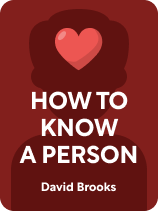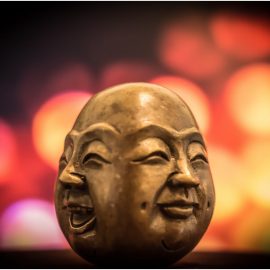

This article is an excerpt from the Shortform book guide to "How to Know a Person" by David Brooks. Shortform has the world's best summaries and analyses of books you should be reading.
Like this article? Sign up for a free trial here.
Why do politics divide people? How much of an effort should you make to understand someone’s life story?
If you truly want to get to know someone, you have to stop assuming they come from a similar background as you. David Brooks considers it vital to learn to look at others and appreciate the depth and merit of their perspective.
Keep reading to learn more about why understanding different perspectives is important.
Appreciating Different Perspectives and Life Stories
David Brooks points out that we live in diverse societies filled with people who are similar to us in some ways and different from us in others. But we have no hope of really knowing people who are different from us if we can’t understand different perspectives, and value the diversity of points of view and experiences that others bring with them.
(Shortform note: While it’s important to appreciate diverse perspectives, it’s often difficult for us to even realize that other people think differently than we do. A cognitive bias called the false consensus effect causes us to overestimate how much other people agree with us. This leads us to believe our opinions are more common than they actually are. The effect can be particularly strong when we feel passionate about an issue or highly confident in our opinion. Plus, we tend to assume that the majority of people would make the same choices we would, and we view those who choose differently more negatively—two major cognitive obstacles to valuing perspectives that are different from our own.)
Brooks contends that when people feel isolated, they turn to social groups like political parties to find meaning and to establish their identities. But this coping mechanism doesn’t really work: We can’t build real connections with others by defining ourselves with political parties that tend to dehumanize and demean their opponents. Brooks explains that we need ways to connect with others that get us to appreciate rather than fear differences of opinion.
To build this appreciation for ways of thinking and living that are different from yours, you have to learn to see things from other people’s points of view, according to Brooks. That helps you to understand them better. But it does more than that: When you make a point of engaging with people and listening to what they have to say, you can also help them feel respected, which is a rare experience for many of us.
| Why Are Politics So Effective at Dividing People? Brooks’s observation that people turn to politics for meaning and identity—and fail to find what they’re looking for—aligns with recent research on how politics tend to divide us. Researchers say political divisions increasingly arise from emotional reactions to political issues rather than from disagreements about policy or philosophy. People who engage with politics also feel strong negative emotions toward the opposing party: More than half of Republicans and Democrats view the other party as “a threat.” Nearly as many agree with the description of the other party as “evil.” So it’s no surprise that people feel increasingly loyal to their political group—and increasingly antagonistic toward their political opponents. These findings underscore the urgency of Brooks’s call for finding mutual understanding with people who think differently than we do. Research suggests that political polarization is fueled by our natural tendencies to form tight-knit groups and to view outsiders with suspicion—tendencies that can be easily exploited by politicians who want to get ahead. But the problem isn’t intractable: Experts say most Americans care about their fellow citizens regardless of political views. This suggests that we don’t have to let political rhetoric push us to write off members of the opposing party. And it’s possible to have respectful relationships with people whose political views are different from your own. To navigate political differences with your acquaintances and friends, you can try several strategies. Social scientists say that building trust and finding common ground create a solid foundation for discussing sensitive topics. So strategies like active listening, using “I’ statements, and asking questions about the other person’s values might help you to lead the conversation to mutual understanding rather than to debate. If emotions run high, agreeing to respectfully disagree or to take breaks can keep discussions constructive. Maintaining friendships across political lines takes patience—but it can be a worthwhile way to build connections rather than fall prey to the divisions encouraged by political polarization. |

———End of Preview———
Like what you just read? Read the rest of the world's best book summary and analysis of David Brooks's "How to Know a Person" at Shortform.
Here's what you'll find in our full How to Know a Person summary:
- The benefits of really getting to know other people
- How to better understand people on a personal level
- Why our morality and relationships are in a crisis






